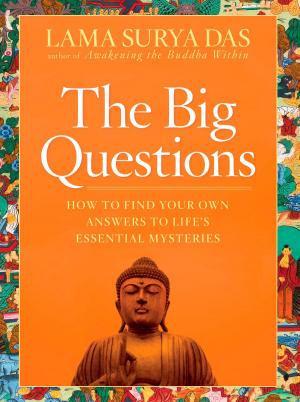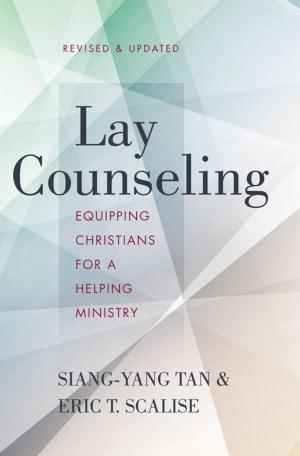Beyond Meditation The Reality That Is
Nonfiction, Religion & Spirituality, Inspiration & Meditation, Spirituality| Author: | J. Robin E. Harger | ISBN: | 9781465870377 |
| Publisher: | J. Robin E. Harger | Publication: | September 18, 2011 |
| Imprint: | Smashwords Edition | Language: | English |
| Author: | J. Robin E. Harger |
| ISBN: | 9781465870377 |
| Publisher: | J. Robin E. Harger |
| Publication: | September 18, 2011 |
| Imprint: | Smashwords Edition |
| Language: | English |
Why meditate at all? Most people soon give up trying after their persistent and consistent attempts at meditation fail to yield anything positive at all. The reason being simply that their own mind-locks prevent them from going further than to note that a space of no-light seems to embrace them as soon as they close their eyes. However, if one persists, this “dark curtain” can readily be dissolved thus allowing one to venture further and further ”behind the scenes” as it were. It is when the venture appears to result in eventual peace that some encouragement may be extracted from the exercise and if extended it is this alone that can impose a more or less permanent sense of peace on the otherwise busy mind.
To permit the development of a lasting sense of peace it may well be necessary to remove the despondency occasioned by the shadows that sometimes rise-up and seek to dominate the mind. For the most part these shadows arise as a consequence of unresolved personal issues that have been bundled away into the darker recesses of the mind. The modern world is full of admonitions made by “helpful” advisers, after difficulties have been encountered, to the effect that one should just “move on” and “put aside” heartache and disappointment. The phrase “just “forget about it” is popularly regarded as being good advice for dealing with disappointment and while that may indeed provide temporary relief it cannot support the development of a peaceful mind over the long haul.
The reason for this is quite simple, unless you yourself are quite satisfied with the role you have played in establishing the very basis of the incident(s) concerned (let alone the outcome of the consequences that have flowed there-from) it will be impossible for matters to remain dormant. The goal of meditation in the first instance is to settle such disturbances and the active principle concerned is the assumption of personal responsibility for the unwitting outcomes that have eventuated. So, first-order meditation really concerns the establishment of “personal peace” as such and this must be done on a sound basis.
In general, most people faced with difficulties in their every-day lives are likely to place blame for such circumstances on everybody and every condition other than themselves. The way to peace however, simply involves making a one hundred and eighty degree turn on that deep-felt impulse and replacing it blindly with the idea that one is ultimately directly responsible for all outcomes encountered in life. Well, that is easier said than done (many would say) and besides which it is just not true
Before we tackle the problem posed by the assertion that we are not the authors of our own lives, our own destinies, our own perceived circumstances and so forth we might care to raise the question: if not us directly then to whom are we to attribute the circumstances that befall us? Phrased in this manner, the question becomes even more difficult to answer which again forces us to consider the role we ourselves have played in bringing our own lives into their current contexts and maybe even into being in the first place.
So much for background considerations, but as a matter of practical concern, it turns out that the bad feelings associated with all of our shadows, traumas, unfortunate luck and so forth can be relieved directly by raising the simple question “in what way did I directly contribute to this (unfortunate) outcome”?
Why meditate at all? Most people soon give up trying after their persistent and consistent attempts at meditation fail to yield anything positive at all. The reason being simply that their own mind-locks prevent them from going further than to note that a space of no-light seems to embrace them as soon as they close their eyes. However, if one persists, this “dark curtain” can readily be dissolved thus allowing one to venture further and further ”behind the scenes” as it were. It is when the venture appears to result in eventual peace that some encouragement may be extracted from the exercise and if extended it is this alone that can impose a more or less permanent sense of peace on the otherwise busy mind.
To permit the development of a lasting sense of peace it may well be necessary to remove the despondency occasioned by the shadows that sometimes rise-up and seek to dominate the mind. For the most part these shadows arise as a consequence of unresolved personal issues that have been bundled away into the darker recesses of the mind. The modern world is full of admonitions made by “helpful” advisers, after difficulties have been encountered, to the effect that one should just “move on” and “put aside” heartache and disappointment. The phrase “just “forget about it” is popularly regarded as being good advice for dealing with disappointment and while that may indeed provide temporary relief it cannot support the development of a peaceful mind over the long haul.
The reason for this is quite simple, unless you yourself are quite satisfied with the role you have played in establishing the very basis of the incident(s) concerned (let alone the outcome of the consequences that have flowed there-from) it will be impossible for matters to remain dormant. The goal of meditation in the first instance is to settle such disturbances and the active principle concerned is the assumption of personal responsibility for the unwitting outcomes that have eventuated. So, first-order meditation really concerns the establishment of “personal peace” as such and this must be done on a sound basis.
In general, most people faced with difficulties in their every-day lives are likely to place blame for such circumstances on everybody and every condition other than themselves. The way to peace however, simply involves making a one hundred and eighty degree turn on that deep-felt impulse and replacing it blindly with the idea that one is ultimately directly responsible for all outcomes encountered in life. Well, that is easier said than done (many would say) and besides which it is just not true
Before we tackle the problem posed by the assertion that we are not the authors of our own lives, our own destinies, our own perceived circumstances and so forth we might care to raise the question: if not us directly then to whom are we to attribute the circumstances that befall us? Phrased in this manner, the question becomes even more difficult to answer which again forces us to consider the role we ourselves have played in bringing our own lives into their current contexts and maybe even into being in the first place.
So much for background considerations, but as a matter of practical concern, it turns out that the bad feelings associated with all of our shadows, traumas, unfortunate luck and so forth can be relieved directly by raising the simple question “in what way did I directly contribute to this (unfortunate) outcome”?















